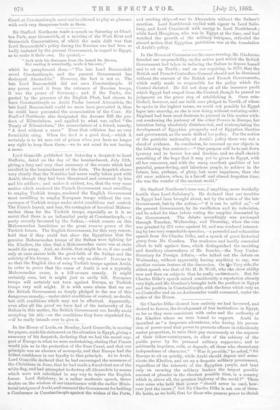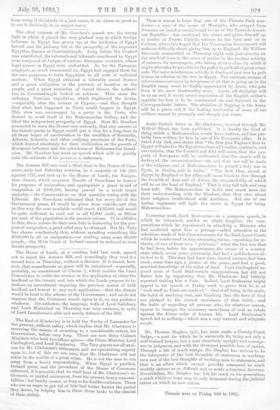Sir Charles Dilke showed how entirely we had favoured, and
desired to favour, the development of free institutions in Egypt, so far as they were consistent with order and the authority of the Khedive whom. we were bound to support. Arabi he described as "a desperate adventurer, who during his posses- sion of power used that power to promote officers in ridiculously undue proportion, to raise their pay enormously at the expense of their fellow-countrymen, to allow of the robbery of the public purse by his personal military supporters, and to arbitrarily imprison, exile, or degrade, all those who showed any independence of character." "Was it possible," he asked, "for Europe to sit on quietly, while Arabi should depose and assas- sinate the Khedive, and set up a despotic military government, regardless of the interests of the Egyptian people, and bent only on securing the military leaders the largest possible amount of plunder in the shortest possible time, in a country which is, above-all, the greatest highway of the world ?" There were so'me who held that power "should never be used, how- ever just the cause ;" but Sir Charles Dille is not one of these. He holds, as we hold, that for those who possess power to shrink
from using it decisively in a just cause, is an abuse as great as to use it decisively in an unjust cause.



































 Previous page
Previous page